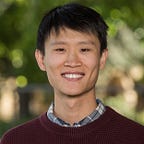Rearview Mirror: What we learned from the 2013 Solar Decathlon
The key design concept behind our Aduo design is the Core, which centralizes all the main mechanical, electrical, and plumbing systems of a home into a compact module which can be prefabricated in a factory setting. This concept is not new — in part because we ourselves developed a version of the concept in 2013, as students at Stanford University.
Back then, Rob Best and I (co-founders of City Systems) were project managers of Stanford’s first entry into the U.S. Department of Energy’s Solar Decathlon competition, in which collegiate teams across the world designed, engineered, and built net-zero, solar-powered homes which were then delivered by truck (or boat) to a competition site (in our case, Southern California), where they were judged for performance while toured by the public. (Brian Carilli, current board member of City Systems and designer for Aduo, played a key mentorship role.) It was an incredible learning opportunity for over a hundred Stanford students, and by far the highlight of my undergraduate experience.
Being a “Stanford” team, we wanted to produce not just one cool home, but an entire industry vision. That ended up being the Core concept, which you can see in animated form, and in real-life, below:
In the case of the Solar Decathlon, we envisioned the Core as for single-family residential homes, where the specific Start.Home we designed was just one example of a home built around the Core. The competition jury thought this was a compelling idea, awarding us 3rd place overall in Market Appeal. We also won 1st place in Affordability, which was judged by a professional cost estimator. To us, this was arguably the most important of all ten “decathlon” contests because of our commitment to lowering the barriers to sustainable living.
That being said, our Solar Decathlon house was still far from “affordable” in the sense that matters for disadvantaged communities. A troubling realization we didn’t have until after the competition was that, as a team of bright, talented students, we never once questioned one of the basic premises of a “sustainability” competition — that our designs were required to be single-family homes. A more holistic view of sustainability must acknowledge that single-family zoning is at the root of many of our land use and resource problems — as well as many of our social and economic problems — and that a truly sustainable future must leverage the systems benefits of mixed-use, walkable urbanism (Rob and I laid out this argument in a 2015 critical essay on ArchDaily). And back to the building scale: it turns out that smaller, shared-wall dwellings are not only more energy-saving — but also more naturally affordable.
That is why, eight years later, we are revisiting the original Core concept, but at the scale of accessory dwelling units (specifically garage conversions). ADUs can incrementally infill single-family neighborhoods in a way that reduces resource consumption per capita, increases wealth for low-income homeowners, and opens the door to a more diverse and equitable community. That more inclusive community can, in turn through democracy, pave the way towards a more sustainable and equitable urban future.
So what did we learn from the Solar Decathlon?
- We learned how to engineer a Core module that can deliver the best building technologies at the lowest cost, and look forward to designing a version that can plug into a garage.
- We built relationships and a work ethic that last to this day, and drive our passion for improving the built environment.
- We exposed blind spots in our understanding of urban systems, and recommitted ourselves to tackling the housing affordability crisis in the Bay Area.
We’re infusing these lessons into Aduo: a small solution, but big idea.
